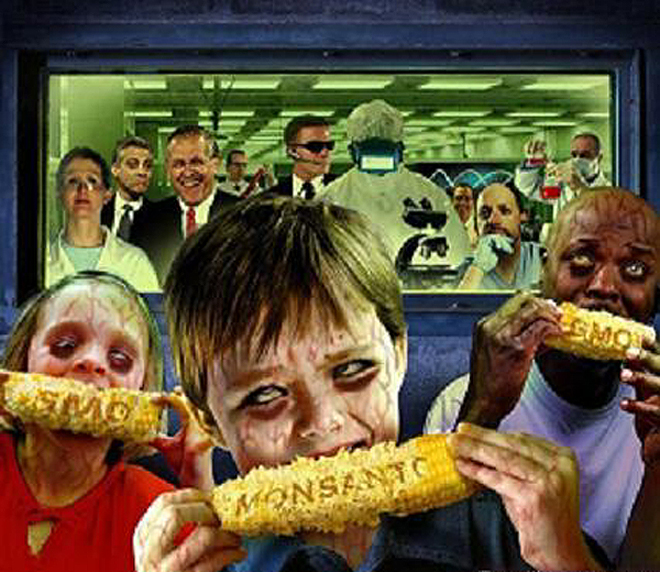
If my relatives are any indication, America is turning neon green. We couldn’t even use non-organic salt for the July 4th barbecues. And the meat was hormone free and the veggies had to be certified non-bioengineered.
I can’t blame the younger generation. They are beset by pandemics of autism and allergies difficult to explain. And I’m the first to rate the taste of organic food as far superior to all that processed stuff.
But the world is starving and many of Africa’s leading advocates for increased food production are demanding rapid use of anything that can speed up food production and increase agricultural yields.
Last year both houses of Parliament in Nigeria passed a sweeping law allowing the use of any sort of seed whatever, even those not yet vetted as safe in developed countries.
“Nigeria should be feeding the rest of Africa,” Senator Ayo Adeseu explained at a food forum last week in Ibadan. “But we have been lagging behind due to non adoption of the latest in technologies. ….The urgent challenge before the nation is that we should imbibe biotechnology.”
President Goodluck Johnathan has refused to sign the bill. He has refused to comment specifically as to why, but the bill would allow farmers and their cooperatives to buy seeds from anywhere without the need for any government certification whatever.
The desperation to feed the starving of the world increases every year. This is because some headway is being made, and success breeds hope, and food policies and scientific advances occur more slowly than the death of a malnourished child.
The most critical areas are actually outside Africa. India ranks on top, and yet its economy is growing in leaps and bounds. Last month two scientists in “Tropical Medicine and International Heath” explained this in part because Indians were adopting western lifeways wholesale that, in fact, contribute rather than ameliorate hunger on a macro level.
Fast food, too much sugar, an unbalanced diet when overlaid a population that still has wanton starvation only increases it overall.
But the rapid adoption of western lifeways in places like India can also mean rapid adoption of many of our developed concerns about “being green.” India’s small farmers find themselves twisted into a dilemma about their own survival, the higher cost of genetically modified seed, the certainty of a higher yield but the questions about long-term safety.
So Goodluck Johnathan is not alone, and many in the developed world are impressed with the critics of genetically modified food. The principal criticism is of the increased use of pesticides that can be used against bioengineered crops. Dr. Michael Antoniou of King’s College London School of Medicine said last monththat most bioengineered foodstuffs were dangerous.
The pesticides themselves could kill if not handled correctly, they advanced the immunity of viruses and insects that could be massively harmful to crop yield, and finally Dr. Antoniou worries that the bioengineering itself will create a harmful food.
Everyone stipulates that bioengineering increases yields, and as I survey the area around which I live this year of a drought, it’s amazing to see how bioengineered corn seed has created crops that can survive at least marginally without water!
It’s a race to be sure. But is it a race to end hunger or life?